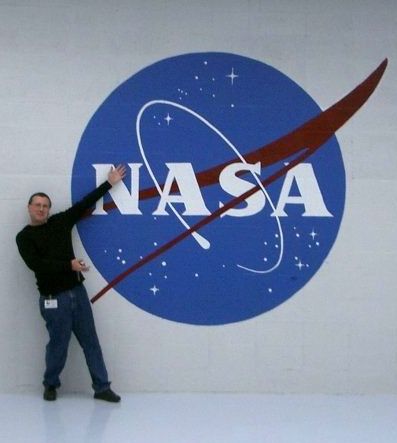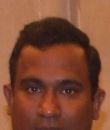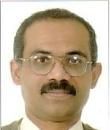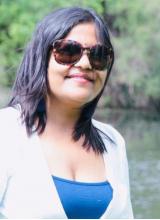
Professor Steven Moore
BE (Hons) MEngSci (UNSW) PhD (University of Sydney)Director, Centre for Machine Learning, Networking and Education Technology (CML-NET)
School of Engineering and Technology
Centre for Intelligent Systems
Building 30 - 2-15
Whilst working as a biomedical engineer at the Royal Prince Alfred Hospital in Sydney I undertook a PhD on image processing techniques for accurate assessment of 3D eye movements. The eye tracking system was used clinically at RPAH in the diagnosis of vestibular (balance) disorders, and was also of interest to NASA as small rotational movements of the eye reflect output from the otoliths, the gravity-sensing 'accelerometers' of the inner ear that are affected in the virtual absence of gravity during orbital spaceflight. At the completion of my PhD in 1996 I was offered a position as a post-doctoral research associate at Mount Sinai School of Medicine in New York City under Professor Bernard Cohen. I had the unique opportunity of managing a large international NASA-funded project that flew a human centrifuge, capable of generating 1-g of centripetal acceleration, aboard the shuttle Columbia during the 1998 Neurolab mission (STS-90). This was the first (and so far only) application of 'artificial gravity' in human spaceflight. I was also hired as a consultant by the European Space Agency (ESA) Directorate of Manned Spaceflight to oversee the development of the Neurolab video-oculography software, a critical experimental component used to assess otolith function during centrifugation in space and on the ground. Contrary to previous studies, otolith-ocular reflexes and orthostatic tolerance were preserved during and after the Neurolab flight. Based on these results I submitted a proposal to NASA hypothesizing that regular exposure to artificial gravity (centrifugation) aboard the Neurolab mission helped maintain otolith-ocular and otolith-sympathetic reflexes that are usually impaired following extended periods of microgravity. This, my first project as principal investigator, was awarded in 2000.
Over the subsequent 15 years I was the principal investigator on NASA flight studies totaling over US$6.3 million aboard the space shuttle and the Mir and International space stations (ISS). My last flight project, awarded in 2009, has assessed the ability of astronauts to operate complex machinery (simulated aircraft landings and driving a car) on the day of landing after 6-months aboard the ISS. Astronaut testing was completed in June 2015, and the study results were presented to NASA's mission architecture team to help plan early crew activities after lengthy transits in microgravity for future exploration-class missions. In 2005 I applied the measurement technologies developed in support of astronaut assessment to the evaluation of pathological gait in Parkinson's disease, and I have since received funding for this work from the National Institutes of Health (NIH) and the Michael J. Fox Foundation. In 2016, after 20 years at Mount Sinai, I returned to Australia to start a new career at CQUniversity. As Deputy Dean Research (2016-2022) I had the pleasure of managing the diverse research portfolio within the School of Engineering of Technology. I am currently the director of the newly established Centre for Machine Learning, Networking and Education Technology (CML-NET), which provides bespoke AI-based solutions to problems in the areas of agriculture, marine science, resources, aviation and healthcare.
Universities Studied At
University of NSW
Bachelor of Engineering (Hons) 1982-1988
Master of Engineering Science 1988-1990
University of Sydney
Doctor of Philosophy 1993-1996
Universities Worked At
University of NSW
1988-1990
Research Associate, School of Electrical Engineering and Telecommunications
University of Sydney
1993-1995
Lecturer, RPAH Neuro-otology Department
Mount Sinai School of Medicine (now the Icahn School of Medicine at Mount Sinai) New York City
1996-2016
Currently Adjunct Professor of Neurology
CQUniversity
2016-2022
Professor, Deputy Dean for Research in the School of Engineering and Technology
Awards
Young Investigators Grant, Australian Brain Foundation, 1993
Dora Lush Biomedical Post-Graduate Scholarship, National Health and Medical Research Council (NHMRC) Australia, 1993-1995
NASA Certificate of Achievement ATLAS project on Neurolab STS-90, 1998
NASA Certificate of Recognition for a Space Act Award, November 8, 2005
Journal of Neuroscience Methods; Top-cited paper 2008-2010 'Ambulatory monitoring of freezing of gait in Parkinson's disease' 2010.
Australasian Society of Aerospace Medicine, Eric Stephenson Award, 2018.
Media Citations
December 1 2022 The Conversation The world finally has its first 'parastronaut' Can we expect anyone to be able to go to space one day?
July 6 2021 The Conversation What does it take to do a spacewalk? Skill, courage, and being able to wear a men's size medium
June 9 2020 The Conversation Curious Kids: How would they bring the International Space Station back down to earth?
June 1 2020 7NEWS Central Queensland Virtual Reality for remote education
October 15 2020 7NEWS Mackay Rennie the Robot
February 26 2018 ABC News What happens to an astronaut's ability to drive after a space mission?
May 30 2011 Smithsonian Air & Space Magazine article “Ground Effect” about my research into modeling spatial disorientation in shuttle commanders using electrical stimulation of the balance nerve.
August 24 2010 Wired magazine article “Zapping nerves simulates space-flight effects”
November 22 2010 radio interview on the Space Show with Dr David Livingston.
Professional Memberships
Australasian Society for Aerospace Medicine
Australian Space Agency, Technical Advisory Group on space life science
Consultancy Work
European Space Agency
Directorate of Manned Spaceflight, Nordwijk, the Netherlands,1996-1998
Development of flight hardware for eye movement measurement aboard the Neurolab shuttle mission
Airbus
Toulouse, France, 2004-2006
Investigation of head-eye coordination during simulated tail strike
Neurocom Inc
Pittsburgh PA, 2004-2005
Development of commercial video-oculography system
Vesticon Inc
Portland OR, 2006
Development of commercial video-oculography system
Assessing suitability of drones for heavy haul track inspection (HH15 - Drone Track Inspection)
Grant: Contract Research (Category 3)
Funding Schemes: ACRI - Australasian Centre for Rail Innovation
Total Funding: $105,365.00
SBAS testbed - increased accuracy in on-animal spatio-temporal monitoring for livestock sensing applications
Grant: Competitive Grant (Category 2: Other Public Sector)
Funding Schemes: Cooperative Research Centre for Spatial Information - Project Grants
Total Funding: $210,000.00
Accreditation
I am currently accredited for supervision in the following:
- 3209 Neurosciences
- 4001 Aerospace Engineering
- 4003 Biomedical Engineering
Current Capacity
Current Supervision
Biomedical Engineering - Biomedical Instrumentation
Neurosciences - Central Nervous System
Space Adaptation Syndrome, Parkinson's Disease, Movement Disorders, Vestibular disorders





